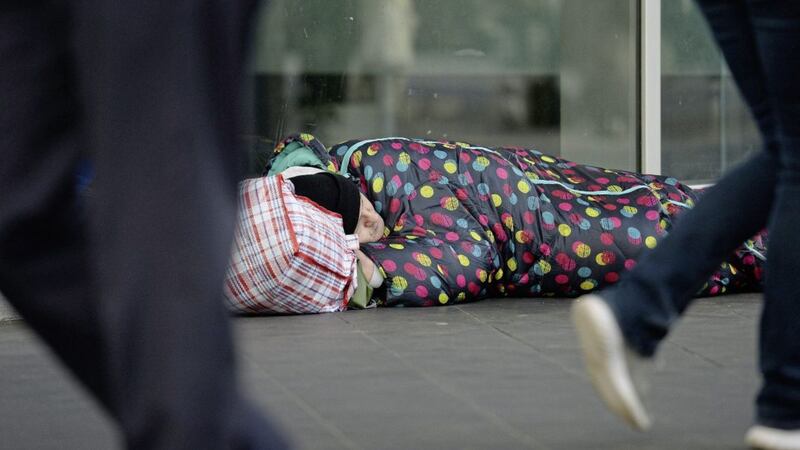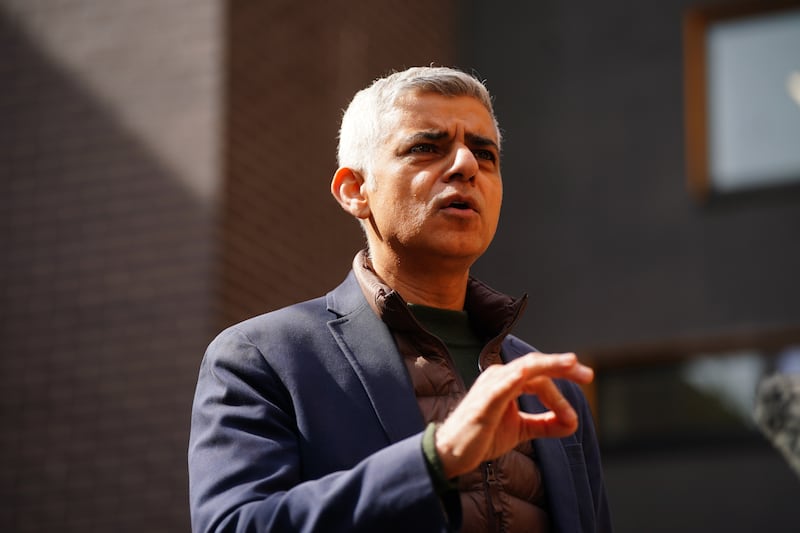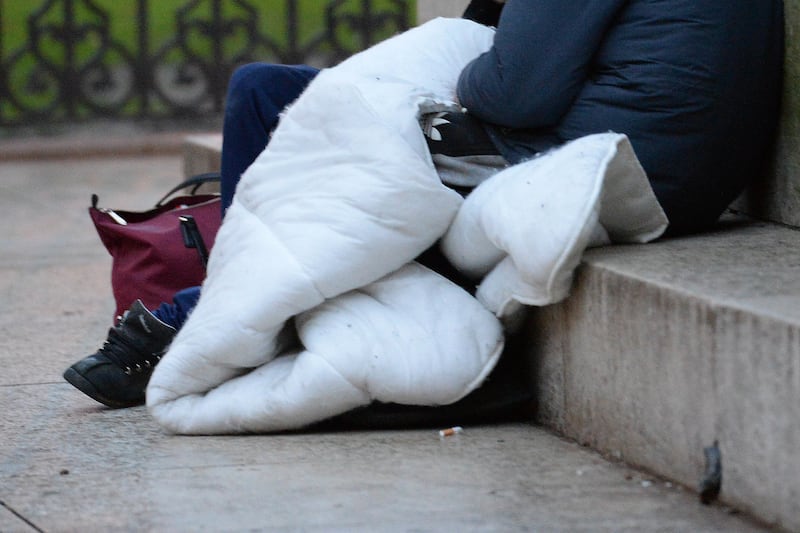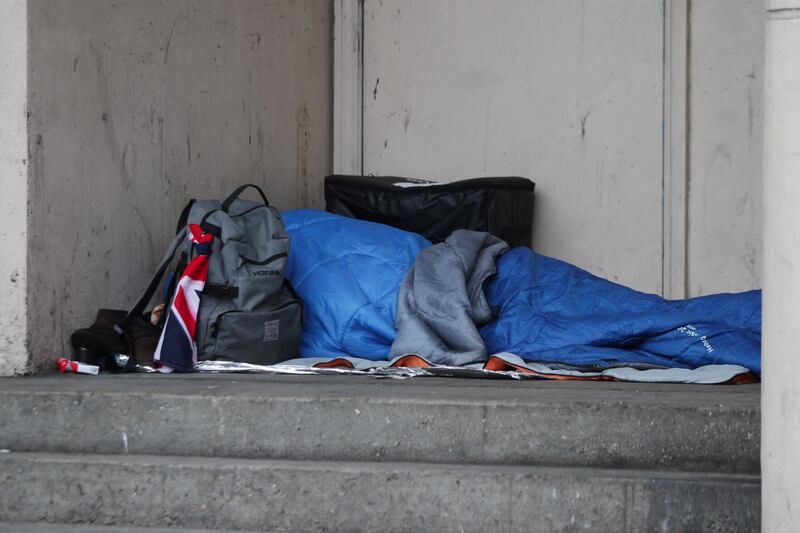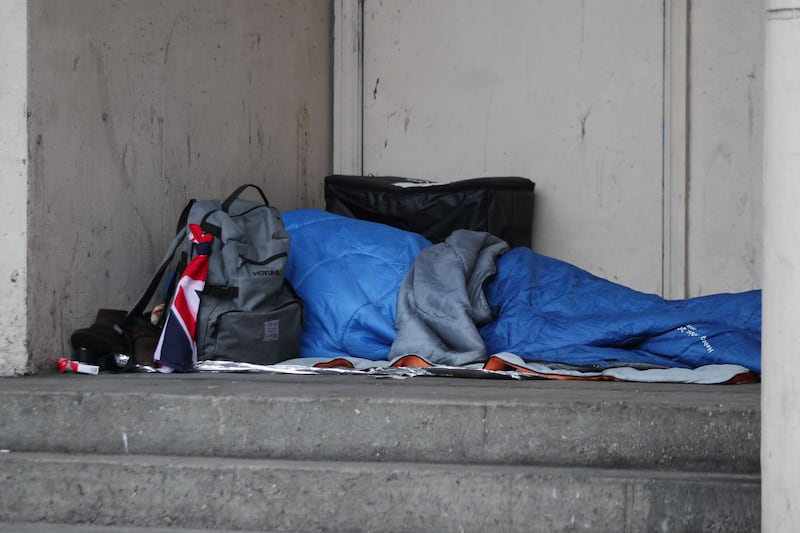The number of adults and children who are homeless in the Republic of Ireland has reached a new record high of 10,568, as housing charities warned that an urgent response was needed to prevent the crisis from worsening.
The previous peak for the Department of Housing’s official figures was in October 2019, when 10,514 people were recorded as being in emergency accommodation.
The department’s latest monthly figures show there are 7,431 adults and 3,137 children who are in accommodation for people who are homeless across Ireland.
This comes after a record high number of young adults were registered as homeless in April, when the number of homeless people passed the 10,000 threshold for the first time since the pandemic began.
The Government is grappling with a lack of accommodation for arriving Ukrainian refugees and with a squeeze on affordable student accommodation this autumn amid the long-running housing crisis.
Housing charity Dublin Simon Community said the homelessness crisis has “never been this bleak or urgent”, and called on the Government and other agencies to work on a crisis plan “as a matter of urgency”.
Dublin Simon Community spokeswoman Caoimhe O’Connell said: “We are extremely distressed by the ongoing rise in the number of people presenting in emergency accommodation.
“Last month, we broke a record we never wanted to reach in Dublin and now, devastatingly, the same has happened at a national level.
“In our 50 years of providing homeless services, the situation has never been this bleak or urgent.”
Chief executive of the charity Focus Ireland Pat Dennigan warned that the figures represented just a small glimpse at the scale and severity of the housing crisis.
“The real number of people who have no home is no doubt considerably higher as local authorities across the country are reporting that every emergency bed is full, and people are being asked to stay temporarily in unsuitable circumstances while new shelters are being commissioned,” he said.
“This hidden homelessness is also at record levels.”
Mr Dennigan added that the crisis is expected to get worse, as a significant number of landlords leave the market in order to sell their properties.
“Not all these households will need homeless services, and we will be working to help people find alternative homes but it is hard to see emergency homeless services being able to cope with the number of people that will need our support. This scale of escalating crisis needs a proportionate scale of emergency response.”
He asked the government to convince landlords to stay in the market in the medium-term while the supply of houses is ramped up.
This could include short-term tax relief, he said.
Sinn Fein housing spokesperson Eoin O Broin said that since the eviction moratorium was ended by Government in April last year, homelessness “has surged to its highest level ever”.
In April 2021, there was a total of 7,991 people recorded in emergency homeless accommodation; the latest figures show that tally has since risen by 32%.
Social Democrat TD Cian O’Callaghan said that behind the statistics are “lives that have been shattered by a broken system”.
“Homelessness has increased by 30% in the past year – while child homelessness is up by 47% during the same period. These figures are proof that the Government’s plans are failing.
“The Government talks about ending homelessness by 2030, but they have no plan, no strategy, no milestones – and the numbers are going up, not down,” he said.
Reacting to the figures, Labour housing spokesperson Rebecca Moynihan said the political will in Government needed to change to solve the housing crisis.
“The failure of the government to put in place measures to protect renters is having enormous social consequences across the generations and we have to say enough is enough.
“There is a whole suite of measures available to the government if they would listen. A good start is the introduction of an immediate ban on evictions to stop people entering homelessness from the private market, tighter grounds for evictions, a temporary rent freeze and for tenants to be given the same rights as businesses.
“It is not rocket science.”
Reacting to the record high figures, the Housing Minister Darragh O’Brien said that actions the Government had taken in an attempt to reduce homelessness had been “eroded due to a number of factors”.
“Government, local authorities and those in our NGO sectors are making every effort to reduce homelessness.
“Funding is in place to deliver 10,500 social homes this year, including 9,000 new build homes, and our pipeline into the future is strong.
“We know that improvements which had been made in the reduction of homelessness have been eroded due to a number of factors, including an increase in ‘notices to quits’ in relation to tenancies and a decline in available Housing Assistance Payment (HAP) properties,” he said.
The minister said that there have been 1,319 ‘Housing First’ tenancies this year, a policy which aims to help end long-term homelessness among those with complex health and mental health needs.
“There are 18 separate actions set out in Housing for All to help us to end homelessness, Government are working to progress each of them and we know that key to ending homelessness is the delivery of new social housing and boosting overall supply,” he added.
The department’s housing figures record the number of homeless people housed in emergency accommodation funded and overseen by housing authorities during a specific count week, typically the last full week of the month.
